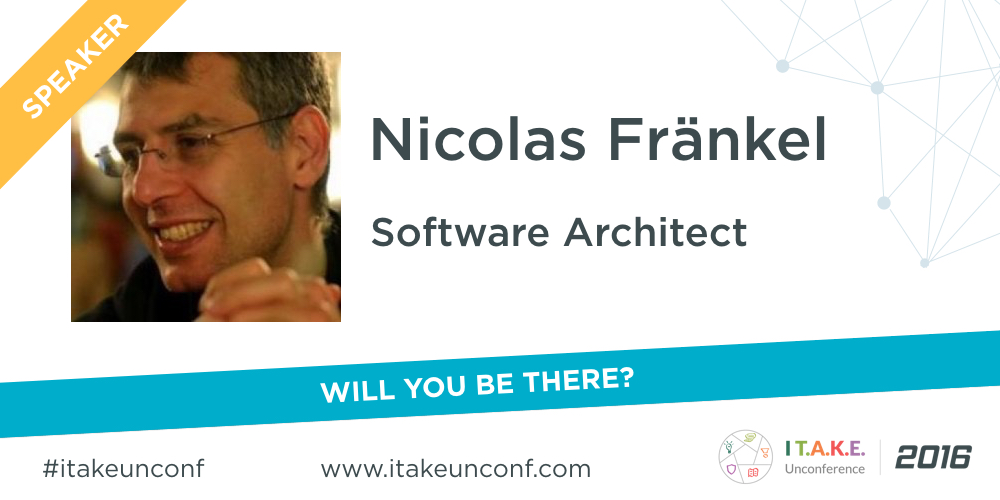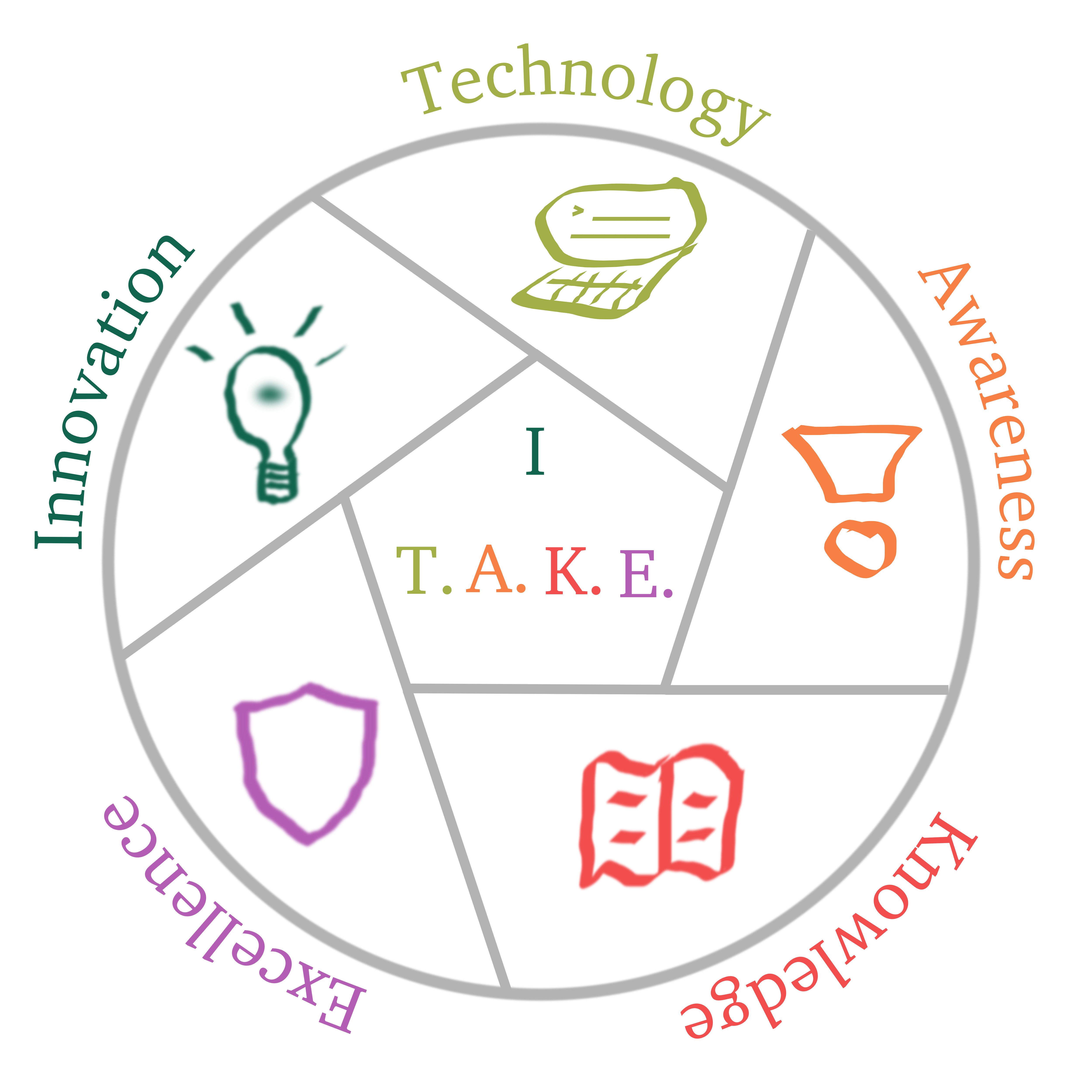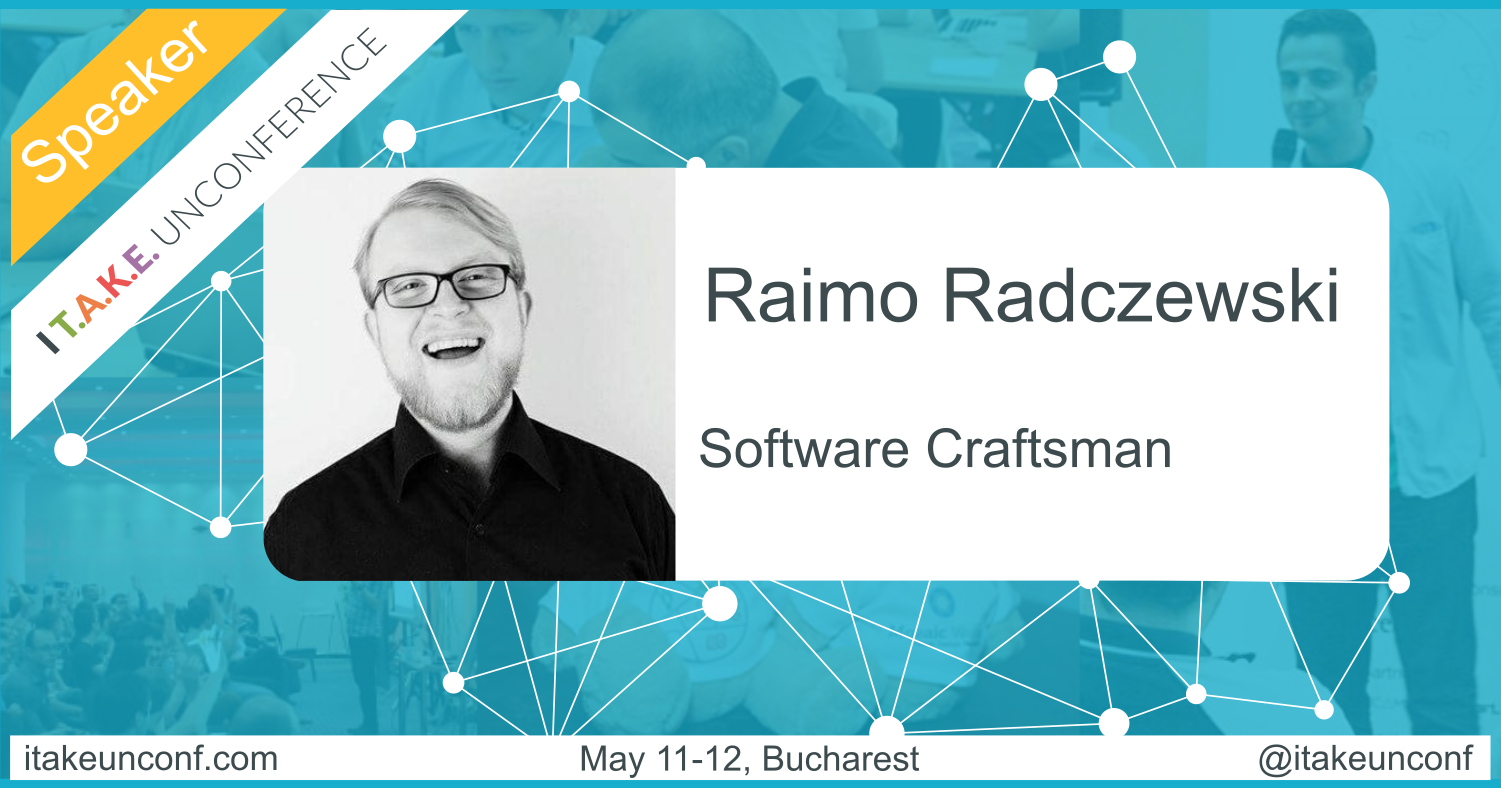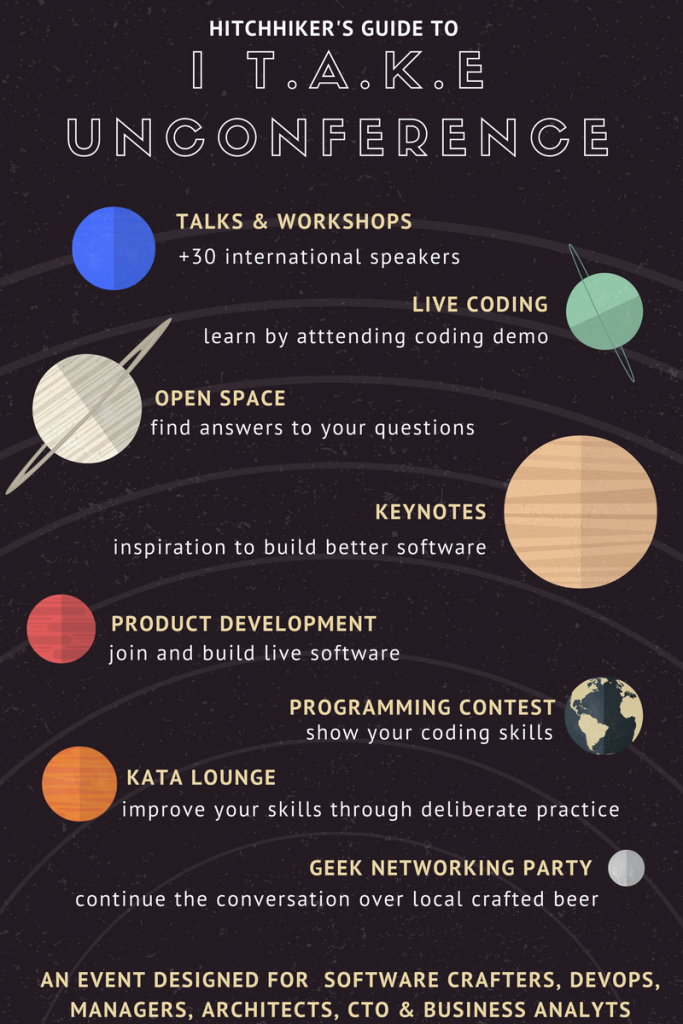
Enjoy the following series of interviews with the speakers, top-notch software crafters from across Europe, joining I T.A.K.E Unconference, Bucharest, 19-20 May. Discover the lessons learned and what drives them to challenge the known path in their field.
Nicolas Fränkel, Software Architect with 15 years of experience in a wide range of contexts, University teacher, experienced trainer and book author will join as speaker I T.A.K.E Unconference 2016. In his talk, he will explain how Code Coverage is computed and what its inherent flaw is. Afterwards, he will describe how Mutation Testing works and how it helps pointing out code that is tested but leave out corner cases.
#1. SHARE TOP 3 THINGS YOU DID THAT HELPED YOU GROW & BECOME THE PROFESSIONAL YOU ARE TODAY
- I chose to become a programmer, because during my architectural studies, there was a course on POV-Ray, a ray-tracing software where scenes are described with a language
- I now avoid not well-understood bash commands after trying to execute a find with exec rm command on a production server and starting deleting the server’s filesystem
- I value knowledge sharing since I started teaching a very long time ago
#2. WHAT CHALLENGES WILL THE PARTICIPANTS FIND SOLUTIONS TO DURING YOUR SESSIONS @ I T.A.K.E UNCONFERENCE 2016?
#3. WHAT ELSE WOULD YOU LIKE TO SHARE WITH PARTICIPANTS?
Want to join Nicolas and many more software crafters from around Europe?








